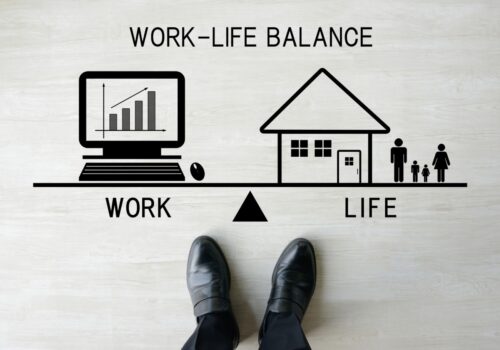Ethics and values are the core of any organization. Big or small, every establishment requires a code of ethics and values to promote positive and conducive behavior. The main idea is to ensure that there is constant improvement in the organization. Improvement is in terms of professionalism, business, and behavior enhancement. It ensures that the employees meet their targets honestly. Most of the time, the code of ethics is in accordance with the stipulated laws and regulations. Let’s dive deep into the importance of ethics and values in the workplace to create a better workplace.
Meaning of ethics and values
Generally, people tend to use the words ethics and values interchangeably. However, there is a fine line of difference between the two.
Ethics, or ethical behavior, is a documented set of principles according to which people are expected to behave. That is why organizations have a code of conduct.
Values are the inner conscience. That is to say, based on our values, we make decisions. Behavior based on values balances out any conflict in an organization.
Identifying ethical behavior in an organization.
When a person behaves in the following manner, we can say that they are exhibiting unethical behavior-
- Those who follow their own ethics and do not pay much heed to the values of others or of the company.
- Exhibiting diverse behavior in different situations.
- Claims to be loyal but aren’t.
- Their values are behavior are self-centered.
On the other hand, ethical behavior has the following traits-
- Their performance is excellent in good and bad situations.
- They uphold the right values and act following them.
- They are self-respecting, honest, and supportive, and they hold themselves accountable for their actions.
The five steps of ethical decision making
Here are the five steps to ethical decision-making:
- Assessment: ensure that you have complete knowledge of things and facts about the dilemma.
- Alternatives: weigh your choices.
- Analysis: arrive at a decision and analyze its validity.
- Application: check whether your decision complies with your ethics
- Action: take the decision
The Importance of Ethics and Values in an Organization
- Ethical values like honesty, integrity, reliability, understanding, and respect help us deal with ethical dilemmas. Situations may arise wherein we need to act according to what is best for us without jeopardizing the organization’s interest.
- Secondly, values and ethics create a harmonious and positive corporate culture. When employees are aware that a moral policy exists, they feel protected and show the best results.
- Third, it is imperative to maintain consumer confidence. A few bad reviews can tarnish a company’s reputation. The way a company deals with its customers speaks volumes about them.
- Fourth, minimize risks by ensuring growth in accordance with the environment and society.
- Fifth, reduce the chances of potential lawsuits by adhering to a set of rules regarding harassment and discrimination. This can help organizations save their money and reputation.
Using values and ethics in an organization
For an individual, ethics help them make the right decisions regarding their behavior and actions. The company’s primary aim in drafting a code of ethics is to avoid any legal issues. The main aim of any organization or company is to maximize profits. To realize this, they may indulge in polluting the environment, deceiving clients, evading taxes, or treating their employees as machines and commodities. Such a situation is worrisome for society because it cannot benefit from it. This is where a code of ethics becomes useful. Any organization needs to act in accordance with the basic principles of humanity.

Effects of ethics and values on the growth of an organization
The impact of values and ethics on an organization can be felt at several levels. Certain companies consciously make decisions that benefit the workers and society while forfeiting their profits. During mergers and acquisitions, there can be a clash of ethics. At times it becomes difficult to bring everybody on the same platform and ensure the code of ethics is followed by old and new employees equally. It is at this time that the Directors and CEO need to act in accordance with the ethics and values. They need to work towards a solution that proves beneficial to the workers, society, and the company.
Role of ethics and values during hiring, termination, and promotions
A person generally has their own set of values and morals. To continue sustaining yourself in an organization, honesty, loyalty, and integrity are very important. If one carries these character traits, then nothing can stop them. This is so because expertise can be taught, but values are learned and difficult to change in a person.
Importance of ethics and values in decision making
When a moral framework exists for managers, directors, and employees to work within, quick decisions are taken. In fact, morally apt decisions are made that benefit the company, employees, and society. Such guiding principles help employees work in an honest manner which in turn benefits the organization.
What is ethical decision making, and why is it difficult to make one in an organization?
Ethical decision-making means arriving at a decision that complies with the code of ethics, and no unethical decisions are taken. It is so hard to arrive at an ethical decision because we live in an ever-changing world where people have different perceptions. It is difficult to remain objective in social situations.
Concluding words
Ethics and values are the basic foundation of any organization. Being its soul, the employees and others will work according to a defined framework. This reduces friction, maximizes profits, minimizes chances of frivolous lawsuits, and in general, creates a favorable environment. Workers are encouraged to remain honest and put their best foot forward.
















